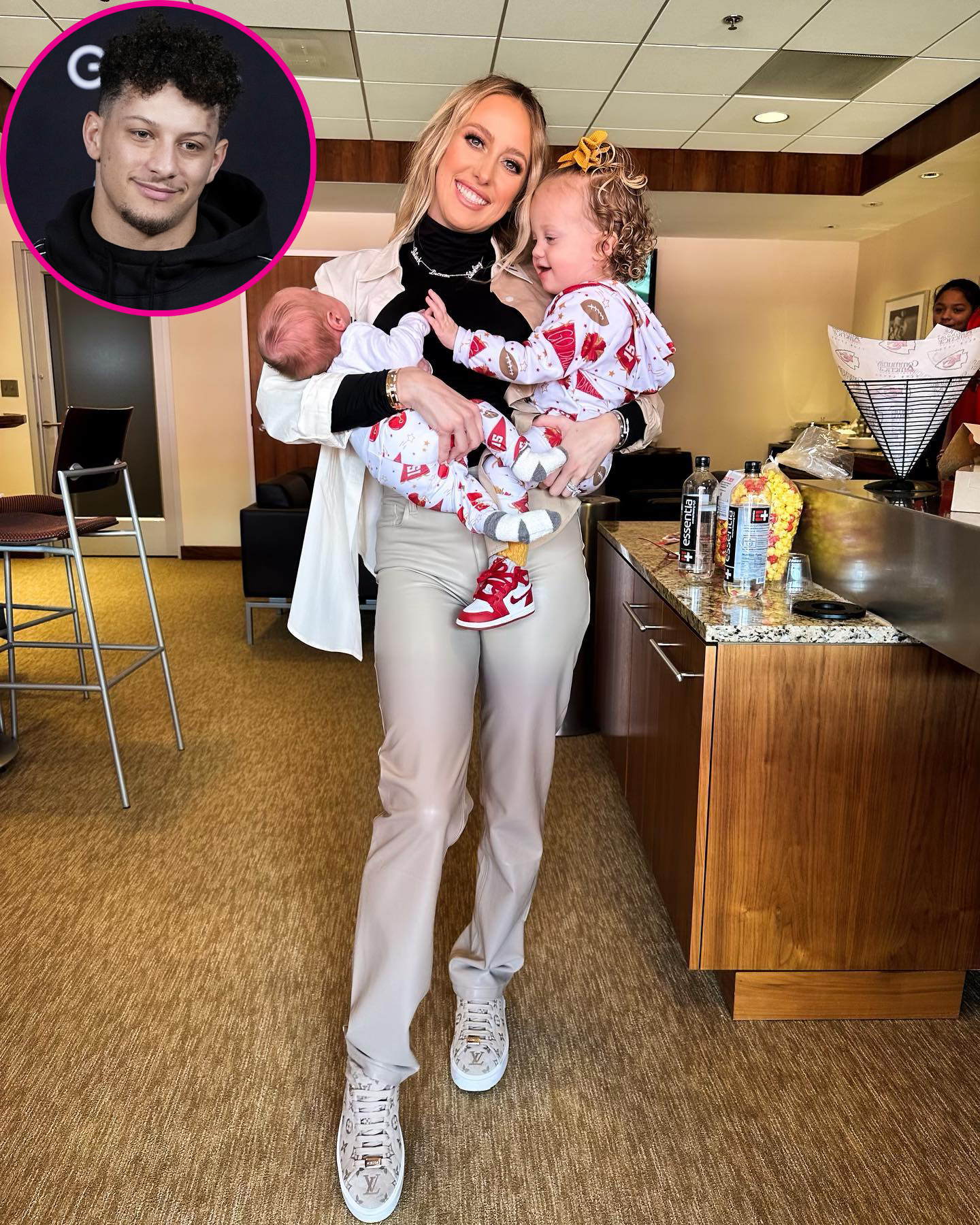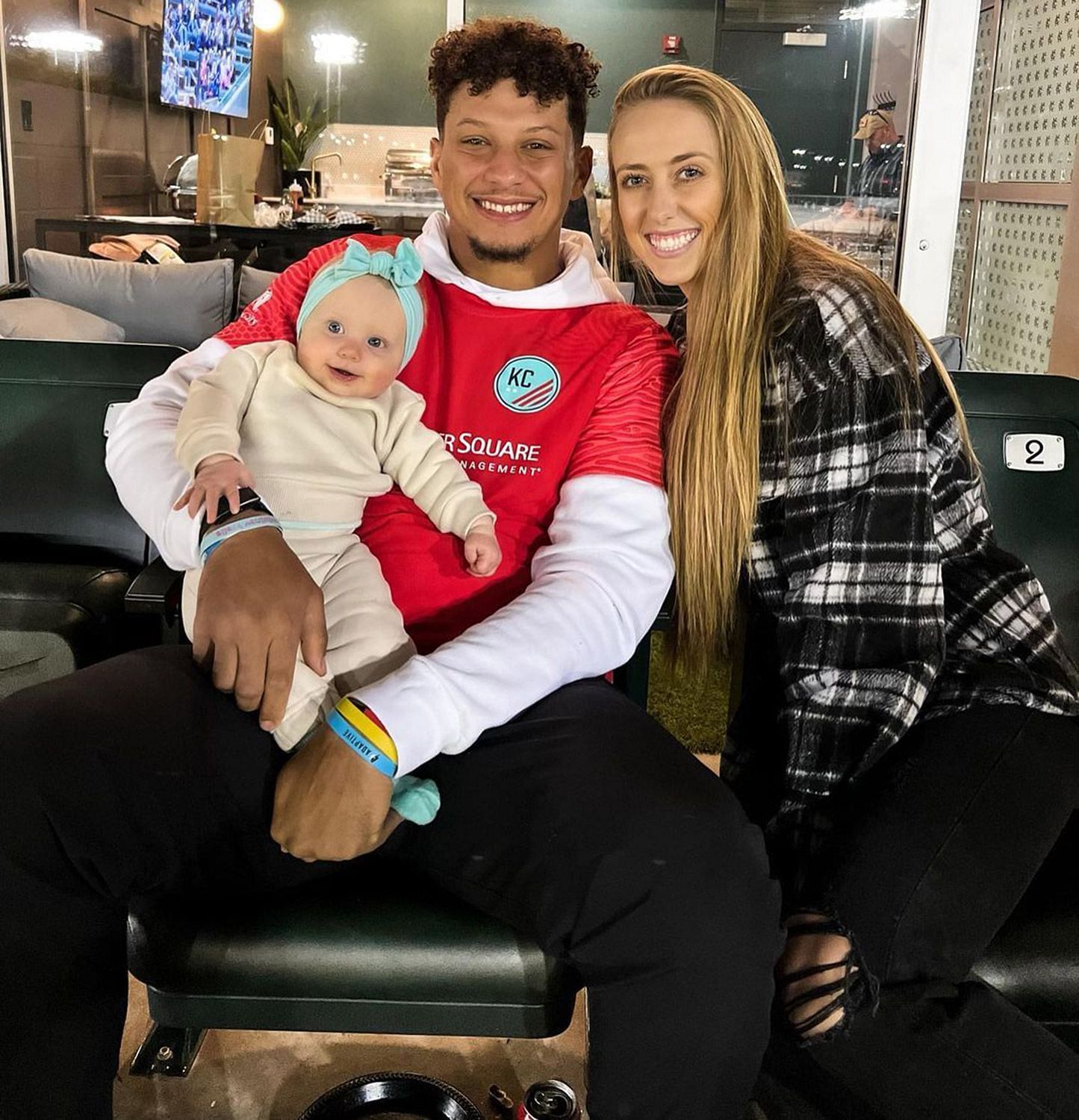Let’s talk about something that’s been buzzing around the sports world and beyond lately: Patrick Mahomes and his family life. If you’re here, chances are you’ve heard about the incredible journey of this NFL superstar and his growing family. But today, we’re diving deep into a topic that has sparked curiosity among fans—whether Patrick Mahomes’ daughter has special needs. It’s a question that deserves respect, understanding, and factual answers. So, grab your coffee, get comfy, and let’s break it down together.
Patrick Mahomes isn’t just a quarterback; he’s a symbol of resilience, talent, and family values. As one of the most celebrated athletes in modern sports, his personal life often finds itself under the microscope. And with the birth of his children, including his daughter, the spotlight has only intensified. The rumors and speculations about his daughter’s condition have sparked discussions across social media and fan circles.
But why does this matter? Well, for starters, understanding the realities of special needs is crucial—not just for sports fans but for everyone. This isn’t just about Patrick Mahomes; it’s about empathy, awareness, and breaking down stereotypes. So, whether you’re a die-hard football fan or just curious about the human side of fame, this article’s got you covered.
Read also:Kristen Kish The Culinary Maestro Of 2025
Biography of Patrick Mahomes: The Man Behind the Mask
Before we dive into the specifics of his daughter, let’s take a moment to appreciate the man himself. Patrick Mahomes II was born on September 17, 1995, in Tyler, Texas. Growing up, he wasn’t just a kid with a football in his hands; he was the son of a former Major League Baseball pitcher, Pat Mahomes, and a former cheerleader, Randi Mahomes. This upbringing set the stage for his future as a multi-talented athlete.
Patrick’s journey to becoming the face of the Kansas City Chiefs and one of the highest-paid athletes in the world is nothing short of legendary. From his college days at Texas Tech to his explosive performances in the NFL, Mahomes has redefined what it means to be a quarterback. But beyond the stats and championships, there’s a man who values family above all else.
Patrick Mahomes: Personal Life and Family
Speaking of family, Patrick Mahomes is married to Brittany Matthews, a former cheerleader and dancer. Together, they’ve built a beautiful family, welcoming their first child, Sterling, in 2021. And then came the news that sent fans into a frenzy—the birth of their daughter, Lil Aviana, in 2023.
Now, here’s where things get interesting. As with any celebrity family, the private lives of the Mahomes clan are often subject to speculation. And when it comes to their daughter, some rumors have suggested that she may have special needs. But before we jump to conclusions, let’s take a closer look at what we know—and what we don’t.
Does Patrick Mahomes Daughter Have Special Needs?
Let’s address the elephant in the room. Does Patrick Mahomes’ daughter, Lil Aviana, have special needs? The short answer is: we don’t know for sure. And honestly, that’s okay. What’s important is how we approach this topic with sensitivity and respect.
While there have been rumors circulating online, neither Patrick nor Brittany has publicly disclosed any details about their daughter’s condition. And that’s their prerogative. Every parent has the right to protect their child’s privacy, especially when they’re in the public eye.
Read also:Donna And Rosy Khalife On Shark Tank The Success Story Behind The Sisterly Success
Understanding Special Needs: What It Really Means
To truly grasp the significance of this question, we need to understand what special needs actually mean. Special needs refer to a wide range of conditions that require additional support, accommodations, or resources. These can include physical, cognitive, emotional, or developmental challenges.
Some examples of special needs include autism spectrum disorder, Down syndrome, ADHD, and sensory processing disorders. Each condition is unique, and the impact on a child’s life can vary widely. It’s essential to recognize that having special needs doesn’t define a person—it’s just one aspect of who they are.
The Importance of Privacy in Celebrity Families
Celebrities like Patrick Mahomes often find themselves in a tricky position when it comes to their children’s privacy. On one hand, fans are naturally curious about the personal lives of their favorite athletes. On the other hand, every parent wants to shield their kids from the harsh realities of fame.
For Patrick and Brittany, this means carefully balancing their public persona with their role as parents. They’ve made it clear that their children’s well-being comes first, and that includes keeping certain aspects of their lives private. And honestly, who can blame them?
Why Privacy Matters
Imagine being a parent whose every move is scrutinized by millions of people. Now imagine having to navigate that while raising a child with special needs. It’s not an easy task, and it’s one that requires immense strength and resilience.
By respecting the privacy of celebrity families, we’re not just being polite—we’re showing empathy. Every child deserves to grow up in an environment where they feel safe, loved, and supported. And for parents like Patrick and Brittany, that means setting boundaries and protecting their children from unnecessary attention.
The Role of Media in Shaping Public Perception
Let’s talk about the media for a moment. In today’s age of instant information, news spreads faster than ever. And with that comes the responsibility to report accurately and responsibly. Unfortunately, not all outlets adhere to these principles.
When it comes to Patrick Mahomes and his family, some media outlets have been quick to speculate about their daughter’s condition without proper verification. This not only creates unnecessary drama but also perpetuates harmful stereotypes about special needs.
How to Be a Responsible Consumer of Information
So, how can we as fans and consumers of information do better? First, it’s important to verify the sources of the news we read. Stick to reputable outlets that prioritize accuracy over sensationalism. Second, approach stories about private individuals with a healthy dose of skepticism. And finally, remember that not every question needs an answer—sometimes, respecting someone’s privacy is the best course of action.
Breaking Down Stereotypes About Special Needs
One of the most important things we can do is challenge the stereotypes surrounding special needs. Too often, people with disabilities are portrayed as either tragic figures or inspirational stories. But the truth is much more nuanced.
People with special needs are just like anyone else—they have dreams, talents, and unique perspectives on the world. By recognizing this, we can create a more inclusive and understanding society.
Ways to Support Families with Special Needs
- Advocate for better resources and support systems
- Volunteer with organizations that help families
- Spread awareness and education about special needs
- Offer emotional support to parents and caregivers
Data and Statistics: The Reality of Special Needs
Let’s talk numbers for a moment. According to the Centers for Disease Control and Prevention (CDC), about 1 in 6 children in the United States has a developmental disability. That’s a significant portion of the population, yet many people still struggle to understand what it means to live with special needs.
Furthermore, research shows that early intervention and support can make a massive difference in the lives of children with special needs. Programs like early childhood education, therapy services, and inclusive schooling are vital for helping these kids reach their full potential.
Key Takeaways from the Data
- Special needs are more common than you might think
- Early intervention is crucial for positive outcomes
- Support systems make a world of difference
The Future of Special Needs Awareness
As we look to the future, there’s hope for a more inclusive and understanding world. Movements like neurodiversity acceptance and disability rights advocacy are gaining traction, and more people are recognizing the value of diversity in all its forms.
For Patrick Mahomes and his family, this means being part of a larger conversation about what it means to raise a child with special needs. Whether or not their daughter has a condition, their story can inspire others to embrace empathy and understanding.
How You Can Get Involved
- Donate to organizations that support families with special needs
- Participate in awareness campaigns and events
- Share positive stories and resources on social media
- Engage in conversations about disability rights
Conclusion: Embracing Empathy and Understanding
In conclusion, the question of whether Patrick Mahomes’ daughter has special needs is just one small piece of a much larger puzzle. What matters most is how we approach this topic—with respect, empathy, and a willingness to learn.
As fans and members of society, we have a responsibility to support families like the Mahomes in any way we can. Whether that means respecting their privacy, challenging stereotypes, or advocating for better resources, every action counts.
So, what’s next? Leave a comment below sharing your thoughts on this topic. Or better yet, share this article with someone who might benefit from the insights. Together, we can create a world where every child, regardless of their needs, feels valued and supported.
Table of Contents
- Biography of Patrick Mahomes: The Man Behind the Mask
- Patrick Mahomes: Personal Life and Family
- Does Patrick Mahomes Daughter Have Special Needs?
- Understanding Special Needs: What It Really Means
- The Importance of Privacy in Celebrity Families
- The Role of Media in Shaping Public Perception
- Breaking Down Stereotypes About Special Needs
- Data and Statistics: The Reality of Special Needs
- The Future of Special Needs Awareness
- Conclusion: Embracing Empathy and Understanding

:max_bytes(150000):strip_icc():focal(515x316:517x318)/Patrick-Mahomes-Smiles-with-Daughter-Sterling-During-Kansas-City-Chiefs-Family-Day-080822-cd00fa2e8c944483b7508d8ba968fae0.jpg)
